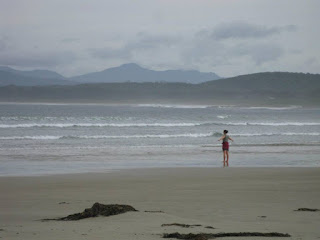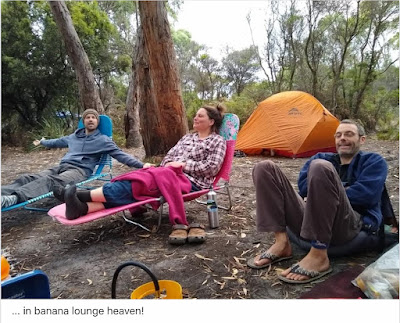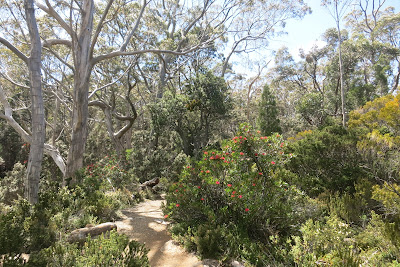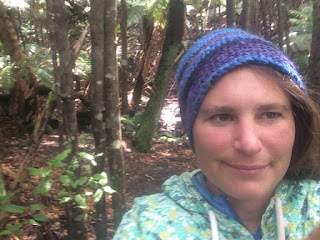Advice on pacing and life for those new to me/cfs or long covid

One of the only possible good things to come out of the pandemic is that due to high case numbers, significant funding has been directed towards research into long covid. If anything is discovered, it will almost certainly also benefit patients with the long underfunded condition of me/cfs.
But it’s heartbreaking when I find out anyone I know has been suffering from long covid. Up until very recently, I may have been having unnecessary jealous and surly thoughts about your shiny, happy, adventurous facebook pictures. But there is no way on earth I wanted you to join the fatigue club. Sure, it's possible to have an okay life with me/cfs. I have a good life, even. But at the same time it’s crap and I’d end this disease in a heartbeat if I could. I really don’t wish this upon anyone.
I hope by now I have convinced all my friends of the extreme importance of pacing if suffering from post-viral fatigue. It’s the main thing I wish I knew how to do when I first got sick, and I believe I wouldn’t have deteriorated to such a low baseline if I had not repeatedly pushed myself beyond my safe zone in my first year. But learning to live with a brand new, invisible disability, without any guidance or even a diagnosis from doctors, is very very hard. Post exertional malaise (PEM), the hallmark symptom of me/cfs, also means you might not know you’ve overdone it until too late. So, while you should please use your strictest discipline to pace yourself very very carefully, don’t blame yourself if you don’t get it right, and overdo it and crash repeatedly for the first little while.
This post is an attempt to compile some of my tips about pacing, and also living with a chronic illness for those new to post-viral fatigue. Pacing has both practical and psychological aspects. You will need to figure out new, practical ways to achieve certain outcomes while using less energy. But you will also need to figure out how to accept your new limitations, to be more at peace with boring resting, when you would so much rather be living your old life, riding your mountain bike, bushwalking, dancing or whatever you like to do.

First off, if you have unusual fatigue after a virus, take it seriously, but don’t panic yet. Panicking is a waste of precious energy! Post viral fatigue, for a few months or more, is quite common and many people fully recover and never get sick again. BUT some people, like myself, who were previously very healthy and had no family history of anything like this, don’t recover. Ever. (Unless we find a cure, or a miracle happens). As yet, there seems to be no predicting who it will strike down.
Most articles on pacing will say “always leave some reserves in your tank”, or “only use half the energy you have” and "rest between tasks". But, actually figuring out what is known as your ‘safe energy envelope’ can be very tricky. It wasn’t until I started using the heart rate monitor technique, that I learned just how slowly I needed to go. I don’t use the monitor much anymore, as after 6.5 years I have become much more in tune with the subtle signals that my body sends me when the empty-fuel tank warning lights are on. (Slightly sore glands, feeling slightly wired).
You are going to need to do some strict energy-expenditure budgeting. Here is my first ever venn diagram, where I have tried to categorize some of the ways you use energy in your life.
It had to be a venn because nothing really fits into any category neatly. I can see how things like ‘exercise’, ‘cooking’, ‘work’, ‘volunteering for x urgent and worthy cause’, and ‘playing with your kids’ may all fall into the middle of the diagram.
But the point of this diagram is to say:
Your first energy-draining things to drop are those that are primarily in the SHOULD category. This might be being an overachiever at work or school, overcommitting to volunteer tasks, having very high cleanliness standards, being a people pleaser, or exercising at a certain intensity every day without listening to what your body actually wants.
Try and figure out if anything in either of the other two categories are actually more in the SHOULD category. You may have to let go of some pride, or expectations that have been placed on you by yourself or society.
Figure out how you can modify things in the ‘have to’ category to be less energy intensive. This could be switching to online grocery shopping, getting a robo vacuum cleaner, asking for and accepting help from friends, using a stool in the shower, or figuring out lower energy activities to do with your kids.
In the ‘want to’ category you can hopefully figure out creative ways to find enjoyment in life that are less energy intensive. Don’t neglect this part of your life, as joy is very important for mental health. Can you find some of the feelings you used to get from high-energy activities, but by using less energy? For example, I sit in the bush instead of bushwalk nowadays. There is so much detail to see in a small part of nature. I sit on a rock by the ocean instead of sea kayaking. I still feel the wind on my face and listen to the waves. I do gentle restorative yoga instead of yoga that involves any aerobic sequences. I can usually still go snorkeling in the summertime. Some people are able to ride electric bikes or other mobility devices. There are many low-energy hobbies, like writing, music, photography and art, and some people who used to play competitive sports now enjoy computer games.
This is all much easier said than done.
You are going to have to figure out how to be less attached to certain things that you valued about your identity. I was very attached to my identity as a fit, adventurous, reliable, independent, competent, bike riding person. I’m sure Buddhists have something profound to say about this. I guess that independence was always an illusion and your ‘identity’ a flimsy facade that life could deal a fatal blow to at any moment. Maybe that you need to regard it as a much more fluid, impermanent thing.
You will need to let go of some of your pride. I used to feel pride about my ability to ride my bike up one of the steepest streets in my hometown. It was a benchmark I measured myself against. I loved exercise and the endorphins it gave me, but sometimes I probably exercised beyond what my body actually wanted, because I thought I ‘should’. I’ve also had to let go of pride of being an environmentalist who rode my bike everywhere, and got most of my stuff from op shops. I have to drive if I want to go anywhere now, and my ability to op-shop is limited.
You will lose muscle and you might gain weight. You might not be able to work anymore. There is a deep-seated story in our culture that what you do, or look like, is what makes your existence worthwhile. This has been drilled into us in a million small and large ways since we were little. I am only just coming to terms with my 1-size fatter-than-it-was body, after 6.5 years. You will need to let go of this bullshit. You are worthwhile just for existing. “You are a human being not a human doing” (Or a human looking). Your most important job in society now is looking after your health, including your mental health, as best you can.
You will be deeply confronted by your own vulnerability. (For example, I am way more terrified of bushfires now). This was always going to happen at some point in your life.
You probably feel very invested in plans you have made for the future, for work or travel. It’s really going to suck if you are forced to let them go. I’m sorry. Life deals curveballs to us all. We don't get to choose these things.
There’s also our fucked up capitalist system to deal with, with nauseatingly high house prices and rents. I hate that some of you may feel forced to keep working because you need to keep a roof over your head and provide for your family. That is an awful, unacceptable part of our society. I wish you the best of luck in figuring out a solution for your own personal circumstances.
You will need to let go of pretending to be okay to your friends, families and colleagues. One you’ve figured your new boundaries out for yourself, you’ll need to communicate them to others. (I used to wear a blue hat to communicate when I was too exhausted to even speak to my housemates). You will need to work creatively with your significant others to figure out new ways of doing things. This will be an ongoing process but will hopefully get easier with time. I hope you have good people around you.
You will most likely need to schedule and prioritize some proper rest into your day, and be disciplined about this. I have been much more stable since I introduced daily compulsory naps. Proper rest involves lying down, eyes closed, no screens, no reading. I listen to an audio body-scan meditation, with headphones and an eye pillow. That usually leads to a nap. I do this every day, even when I don’t think I need to. Usually when I’m feeling the most antsy and frustrated (feelings that I would previously have used exercise to deal with), is when I need to have a nap the most. Baths are also good places for doing nothing except resting. Find activities that calm your nervous system, which can be restorative to your energy levels. I do some gentle yoga or qigong each day, and find slow breathing is also a useful practice.
At some point you are probably going to need to stop clinging to hope of recovery. This might sound harsh, but its about fully accepting your present situation. It also doesn’t mean you let go of hope of having a good life, and hope that you can deal with the worst of the adjustment period and emotions surrounding CFS. You can simultaneously feel grief, sadness and a desperate longing for your old life, but also be overwhelmingly grateful for what you still have. But it is wishful thinking and unrealistic hope for recovery that often leads to people overdoing things and crashing again when they have one good day. On the flip side, along with hope, you could also try letting go of fear and worry about the future. Today might be a day with terrible symptoms, but you don’t know that about tomorrow. You may be sick for the rest of your life. But you don’t know that yet.
You will grieve. Your acceptance of your current condition will fluctuate, as will your physical condition. Relapses can be brutal. You will feel all sorts of unpleasant emotions. In the long run, allowing yourself to feel these emotions rather than denying or fighting them is probably the most healthy and least energy intensive thing to do. But perhaps there are some days that you are too sick to face them directly. That’s okay. Distract yourself with fluff on the tv, internet or in light hearted books. Seek a counselor if you think this will help. (I hope you can find a good one who is affordable and understands this particular illness).
Never let anyone tell you to try graded exercise therapy. You know your own body better than any doctor. Here is the text from a recent series of tweets from a patient called Nina:
"There seems to be a trend among healthcare providers to promote graded exercise therapy for people with ME/CFS but call it ‘pacing’. They encourage patients to “do a little more each day” while also “Not overdoing it” because that “can lead to setbacks”. Here is why that is both dishonest and harmful: You can’t exercise your way out of ME/CFS. There is this perception that you can bypass exertion intolerance by keeping increments small. Spoiler: There is no “ME God'' who you can cheat or bribe so he won’t punish you. Every single patient I know has tried this approach, and has learned one thing: It is much easier to overdo things than to listen to your body and rest. People want to live, they want to move. Unless there is comorbid depression or simply misdiagnosis, patients will routinely have to be encouraged to rest more, not less. For some, resting enough will pay off, expanding their energy envelope a little over time. For others, it will keep them from sliding into severer stages of the illness. But even that can’t always be prevented. So what these providers are doing is turning our most valuable management tool into a manual for self harm. When patients improve, they will naturally expand their activities. We see this happening all the time! If you care for/about people with ME/CFS encourage them to stay within their energy limits. It’s a much harder thing to do than the opposite, even if no hero’s journey is ever written about the person who just stayed at home. Maybe it's time for that to change”.
I recommend joining an online support group, where there are many helpful people who collectively have thousands of years of experience and wisdom, and are very generous with advice for practical and psychological coping strategies. But be selective about what you read. Sometimes the posts are very depressing. Sometimes they are too desperately ‘treatment’ focused.
As per my previous post, I recommend being cautious about ‘cures’ and ‘treatments’. You can read a gazillion books about different miracle cures, all with conflicting information. The supplement and ‘wellness’ industry is huge and unregulated. You can take so many pills you rattle, and spend thousands. (The only thing I’m relatively confident about is that it’s probably good to take some vitamin d if you live in a high latitude place over winter). You can still try (pretty much all unproven) ‘treatments’ but be aware of the financial and energetic cost and the exhausting roller coaster ride of hope and disappointment they can take you on.
Some people have, or will develop dietary intolerances. If that’s you, you probably need to do an elimination diet to find out what they are. Seek advice from a professional. Restricted diets are supposed to be temporary. Make sure you are getting enough nutrients. (There are free online diet tracking apps where you can input your food and find this out). Make sure you aren’t iron or b12 deficient, or coeliac through a blood test at your doctor. Find a diet that is sustainable for you. That is one that you enjoy, that gives you the least digestive distress and the most stable blood sugar, and that is achievable for you to prepare and eat on a low energy budget. Ignore what the silly people in books with their miracle-cure diets say. Sure, give them a crack if you want to. But you are the only one who can discover what the perfect (or good-enough) dietis for you.
Although there is no cure for me/cfs, if you have symptoms other than fatigue, there may be some things you can try and target them. Talk to your doctor. I have had some success treating insomnia with herbal sleeping pills, and I think low dose naltrexone improved my brain fog and marginally improved my energy envelope when I first started taking it. It doesn’t work without pacing though - I still feel terrible if I overdo it and crash.
It will probably be very helpful to read books and consume media by people who have gone through their own humbling disability journeys. However avoid ones that end up with the hero/ine become a paralympian or climbing mount kilimanjaro or something. People with fatigue are never going to be disability-inspiration-porn material. Many people with me/cfs are still hugely inspirational in terms of grace, acceptance, adaptability, kindness and compassion - but not in anything that involves pushing their body beyond their safe energy envelope. (Unfortunately there are not many hero stories in our culture that don’t involve the hero pushing through physical barriers). One of the best books I read was “How to be Sick” by Toni Bernhardt. It is a Buddhist perspective on chronic illness and contains far more helpful tips than are in this short blog post. She also writes her own blog here. (Although in my first year of illness when I was still desperately clinging to hope of recovery, I found it very confronting to read material written by someone who had been sick for over a decade).
That is all the tips I can think of now. If you are one of the people with post covid fatigue, I’m so sorry. I wish with all my heart this wasn’t happening to you. It’s shit. I really hope you are one of the people who fully recover within a few months. I want to be jealous of your adventures again. But pacing is the most important thing you can learn regardless. And whatever happens, I believe “you can do this”. You might surprise yourself. I did. For me, the first year or two adjustment period was the worst psychologically, and physically as I repeatedly overdid it and crashed. But I still have a worthwhile, meaningful, and good life, even with this crappy illness, and sometimes exceptionally crappy days where nothing at all seems good. Those days pass.
I wish you all the best.


























